Hasnat Abdullah, one of the two chief organisers of the National Citizen Party (NCP), has threatened journalists, particularly mentioning the Bashundhara Group, one of the largest conglomerates of the country, which owns at least four newspapers and a private TV channel, to provoke mob attacks amid outcry for the lack of press freedom.
Known as a reliable mob commander of the King’s party and is unpopular for his harsh voice and hellish facial expressions, the Dhaka University graduate appeared in his most ruthless mood while speaking at a rally, followed by a procession of the NCP in Rajshahi city on Sunday night.
“We have not forgotten the role that Bashundhara’s media played on behalf of the murderer Hasina. Now, the Bashundhara Group journalists are out to legitimise those crimes nakedly. They are conspiring to commit another one-eleven (army takeover that occurred on January 11, 2007). The people (NCP supporters) will never tolerate it.”
The group’s Bengali newspaper, the daily Kaler Kantho, published a news article on Hasnat’s speech, with the title “Hasnat Abdullah threatens journalists”. In the Facebook post of the news, Hasnat replied that he did not issue any threat to journalists but specifically to “Bashundhara’s media (outlets)”. He added that the newspaper could write another news story on his comment.
It has been commonplace since August that government supporters often tag journalists, media outlets and owners as Awami League sympathisers, before demanding extortion, forcing management to change, launching mob attacks and threatening them.
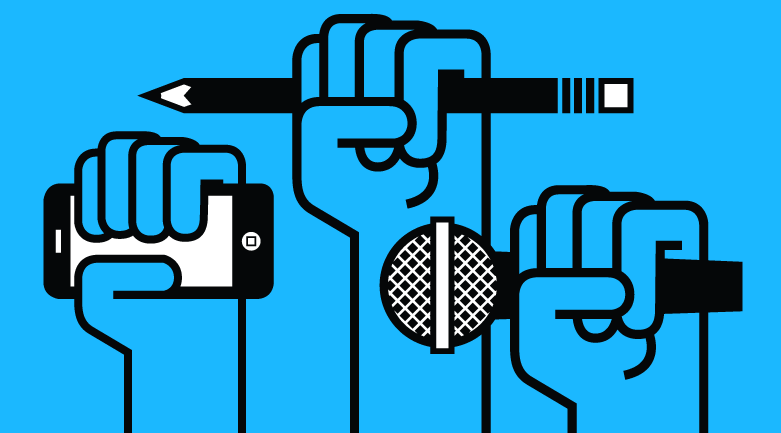
The media building of the Bashundhara Group came under attack after the August 5 changeover. Its top management positions were changed in the following days.
Meanwhile, the company reportedly donated Tk1,500 crore to the NCP earlier in the year while the group chairman, Ahmed Akbar Sobhan, and his family members have been investigated, and their bank accounts and company shares seized over allegations of corruption, embezzlement and money laundering.
Amid an atmosphere of state-sponsored mob violence, in mid-June, the daily Kaler Kantho and the daily Bangladesh Pratidin removed or were forced to remove two news articles from 2023 which described Yunus’ tax evasion worth over Tk1,000 crore from a single company, Grameen Telecom, after expatriate Awami League activist Sushanto Das Gupta shared those on his Facebook account.
Funny enough, the same article is still available on the website of the Daily Sun newspaper.
Yunus aide threatens journalists
A day before Hasnat’s insane lecture, Chief Adviser’s Press Secretary Shafiqul Alam threatened the pro-Awami League journalists with public slander and supposed legal actions.
He revealed that the interim government will request the United Nations to send experts and investigate the state of journalism in Bangladesh over the past 15 years.
He also claimed that the media now operates independently, with no government interference.
Earlier, the press secretary on several occasions called for investigations against journalists and slandered the editors and reporters close to the Awami League government, though it is not synonymous with abetting the killings of students in police action.
Speaking at a meeting on July 5, Shafiqul Alam said that during the previous government, journalism had been heavily controlled. “The interim government is actively working to restore and uphold the principles of free and independent journalism,” he claimed, adding that no intelligence agency will intimidate the media.
However, activists highlight the murder cases filed against over 260 journalists, imprisonment of 39 others, cancellation of accreditation cards of 167 journalists, membership of 101 journalists has been suspended, canceled, or expelled from press clubs across the country, including the National Press Club, removal of over 1,000 from jobs, and mob attacks on media offices and threats to media owners labelling them as collaborators of the Awami League.
On June 26, Shafiqul Alam said that the mobs should be identified as “pressure groups.” He argued that these mobs are comprised of those who felt victimised during the previous government’s tenure.
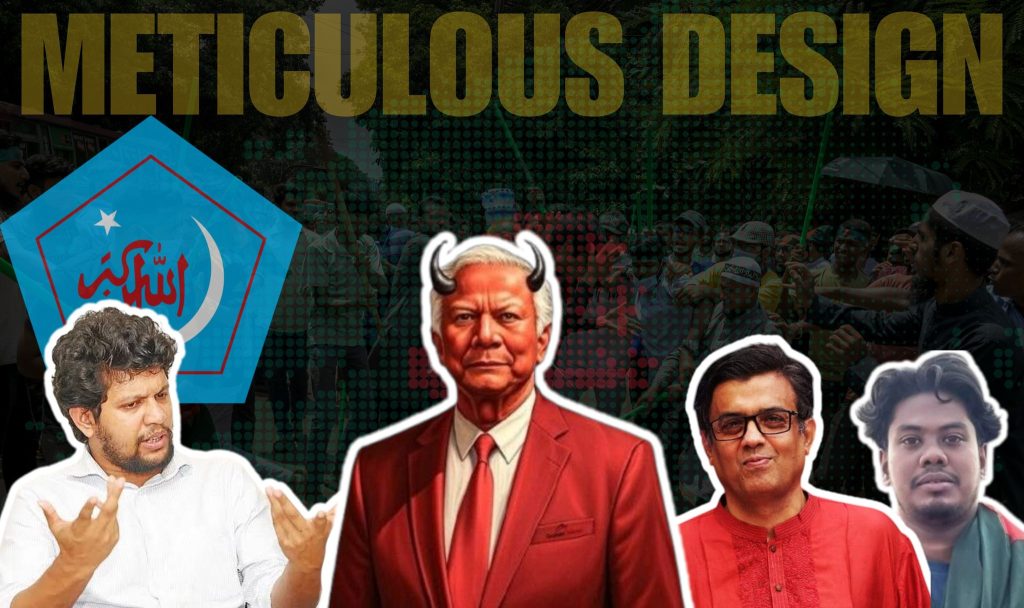
He blamed failures and injustices in journalism over the past 15 and a half years for the creation of mobs.
On July 3, Information Adviser Mahfuj Alam said that the revolutionary students and people of July are not a mob. To prevent mob violence, the abolition of the fascist system, the rule of law, and effective and accountable democracy are needed.
In a post on his verified Facebook ID, Mahfuj said the first “mob” violence in Bangladesh was against the Bihari community in 1971. Then the mob was against students and young freedom fighters who were against Mujibism.
He added that mobs have been against religious minorities for the last 53 years, directly fueled by the established political parties of Bangladesh. If we stretch the definition of “mob,” the so-called Jantar Adalat, Jantar Mancha of 1996, the October 28 protest by BNP in 2023, and the Shahbagh uprising—all are mob justice or mob violence.
However, Mahfuj on February 10 called for an end to mob violence. In a post on his verified Facebook profile, he said: “If you are in favour of the uprising, stop mob violence, and if you don’t stop it, you will be treated as devils.”
Mahfuj said the interim government will deal with mob violence with a strong hand from now on. There will be no concessions if attempts are made to prove the state ineffective and failed, he said.
Mahfuj later deleted this post from his profile.

On July 4, Mahfuj wrote on his Facebook, admitting a meticulously designed movement from June 5 till July 18 last year, as mentioned by Yunus in New York in September, while boasting that as if it was not a crime to kill the police, Awami League members and ordinary people.
Yunus introduced this ultra-leftist and former Shibir leader to the audience at the Clinton Global Initiative as the brain behind the movement and revealed that the student movement was not spontaneous.
Poor record of press freedom
Activists say the country’s newspapers, online portals and private TV stations have become subservient to the government and the King’s party NCP, due to fear of reprisal.
On July 2, in a joint statement, 88 expatriate journalists, teachers, and cultural activists deplored the indescribable persecution of journalists.
“In the history of our land, such persecution, oppression, job losses, and attempts to silence the media and stop the pens have not occurred before. We are not aware of such incidents happening anywhere in the democratic world. We strongly condemn and protest against the unprecedented persecution of journalists and the suppression of freedom of speech,” the statement said.
The signatories said these oppressive actions are primarily aimed at suppressing freedom of speech, as a result of which the country’s image has been severely questioned everywhere.
Moreover, no initiative has been observed by the government to remedy these blanket cases, job losses, and other oppressive incidents; rather, the opposite has been seen. “This has raised our suspicion that the government itself is involved in the persecution process.
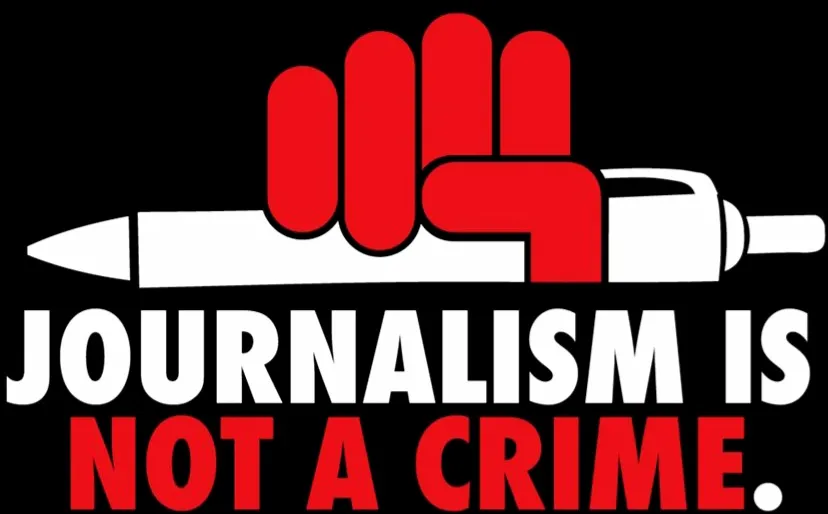
The signatories are deeply concerned to observe the persecution while various written and unwritten controls are being imposed on the media and social media to suppress freedom of expression, which they consider to be an extremely shameful and despicable step.
During the July-August movement and in the subsequent period, 10 journalists were killed, and countless journalists were injured, but the government did not extend any assistance to the affected journalists or their families; rather, the scope of persecution has only expanded, they said.
The people of the country have also witnessed an unprecedented incident like “Jeafot”, where a mob was created in front of a newspaper office to slaughter cows.
“This is probably a rare incident not only in Bangladesh but in the entire world. As a result of these persecutions and oppressions, many journalists and their families are suffering indescribable mental, social, and economic hardships and are living subhuman lives. Needless to say, the mentioned numbers are constantly increasing,” the statement added.
Patronisation of mob, Touhidi Janata
The comments came after widespread criticism of the NCP and its student group members, who created a mob at the Patiya police station and beat up the police members on July 1 and the fierce protest the following day for action against the officer-in-charge (OC), Abu Zahed Md Nazmun Noor. They succeeded. The OC was withdrawn from the station within a few hours.
The previous night was dreadful.
Social media was flooded with photos of a dozen students taking primary medical treatment. They also declared the Patiya Blockade programme in front of the police station for the morning.
Meanwhile, at least two senior leaders of the King’s party NCP and hundreds of leaders and activists of the Anti-Discrimination Student movement (ADSM) and Bangladesh Ganatantrik Chhatra Sangsad (BGCS) gave public posts on Facebook, threatening to burn down the police station, kill the police members and hang them from an overbridge, reminding how they had shown the country in July-August last year.
Another pro-Yunus mob foiled an interview of a senior teacher of Chittagong University, assaulted him for his involvement with a Hindu rights group and warned the vice-chancellor. They also boasted that the students had appointed him to the post, as highlighted by Yunus last year, regarding his selection for the chief adviser’s position.
His glorification of the student leaders of the meticulously designed movement has empowered them to do or say anything they like, with three students in the advisory panel.
Because of the immense influence of the Pakistan government, Jamaat-e-Islami and Chhatra Shibir on the interim government, Yunus has also been patronising the pro-Islamist mobs, which are tasked with destroying the historic sites related to the 1971 Liberation War, Awami League and cultural heritage; carrying out anti-Hindu and anti-India campaigns; and attacking Hindu temples and Sufi shrines, moral policing against the women and slaughtering cows in front of the media outlets critical of the government or its Islamist stakeholders.
Latest, based on demands of some radical Muslims of Khilkhet area, the railway authorities dismantled a temporary Hindu temple and vandalised the idols so carelessly that it stirred widespread criticism.
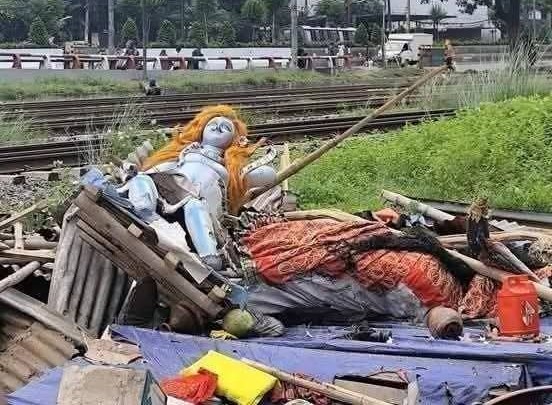
The release of extremist Islamic clerics like Jasimuddin Rahmani, commuting the sentences of notorious militants and not arresting hundreds of militants who fled from prisons during the July-August riots also exposed the government’s radical Islamist mindset.
Deadly mob culture neglected
Over the last 10 months, the average mob killing, 17.9 each month, has been the highest in 10 years.
In 2015, the monthly average was 11.25, according to the rights group Ain o Salish Kendra (ASK).
It said at least 179 people were killed in mob attacks between August 2024 last year and June 23 this year, as per newspaper reports.
At least 51 people were killed by mobs in 2016; 50 in 2017; 39 in 2018; 65 in 2019; 35 in 2020; 28 in 2021; 36 in 2022; 51 in 2023; and 32 between January and July last year.
From August to December last year, at least 96 people were killed by mobs, ASK data shows. This year, at least 83 people had been beaten to death by mobs.
On July 1, Manobadhikar Sanskriti Foundation (MSF), a human rights organisation, said the number of incidents of rapes and killings in mob beatings has increased in the country in June.
Incidents of gang rape and violence against women have also not decreased in the month. Physical abuse and assault have also risen.
Since May, the trend of recovering unidentified bodies has increased, with only a slight decline observed in June. Political violence-related deaths have also not declined.
Saidur Rahman, MSF executive director, said: “Forming a mob is a criminal offence. But the government does not say anything to thwart people from this. The chief adviser, home adviser, law adviser – no one makes any public statements condemning it. Rather, we have heard the chief adviser’s press secretary say these are not mobs, but ‘pressure groups’. This only encourages such injustice.”
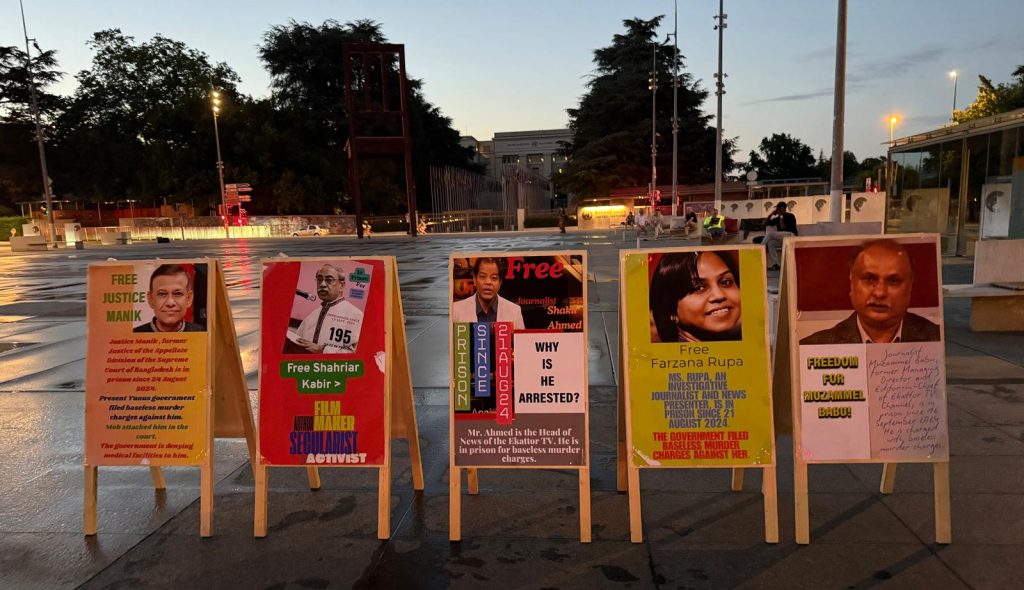
According to the MSF report, at least 41 incidents of mob beating occurred in June, resulting in 10 deaths and 47 critical injuries while 30 victims were handed over to the police in injured condition.
In May, MSF reported 34 incidents of mob beating resulting in seven deaths. Compared to that, June has seen an increase in deaths.
Among the 10 killed in June, two were accused of robbery, three suspected of theft, one accused of murder, two of theft and two were accused of child abuse and rape.
Of the 47 injured were beaten, one was on accusation of murder, five for rape or attempted rape, three for sexual harassment, four for mugging, 17 for affiliation with the banned Awami League, and 15 others on accusation of various other crimes like extortion, abduction, fraud, and verbal abuse.
“Even in the face of horrifying incidents, we are not seeing any visible action from the government that could send out a strong message,” said human rights activist Nur Khan Liton.
Mob violence becomes frequent amid political unrest, he told The Daily Star. “But now these types of incidents are happening at an abnormal scale and frequently.”
Those who are involved in such incidents must not feel that they can get away with it, he added.
He said Bangabandhu Sheikh Mujibur Rahman’s Dhanmondi-32 residence was demolished following public announcements. “The government did not take proper measures to prevent it. Rather, those who committed the act proudly celebrated what they had done.
“Such instances send out a kind of message that the government will not take any legal action. This is the message these people are receiving, because no action has been taken.”
The recent spike in mob attacks became visible after the ban on the Awami League on May 12, despite stern actions by the army, which enjoys magistracy powers.
But the criticisms of the Yunus-sponsored mob rule from different local and international quarters started coming strongly since June 22, when a former chief election commissioner and freedom fighter, KM Nurul Huda, was humiliated by a mob in the presence of the police at his residence in Uttara.
Social media activists identified one of the attackers as Mohammad Muzammel Haque Dhali, the president of Dhaka North Swechchhasebak Dal. He was arrested a day later along with two other leaders of the BNP’s volunteer wing, but only to be released on bail within 24 hours.
Since the assault of Nurul Huda, who is facing a case on charges of staging a farcical election in 2024, some newspapers, including The Daily Star and the daily Kaler Kantho, have given special coverage on mob violence, while many senior journalists and influencers have criticised the government’s inaction and patronisation.
This situation has irritated the chief adviser and his panel of advisers as well as the leaders and activists of the King’s party, who captured power in August through conspiracy and violence.
This is why Yunus’ mob commanders, mainly Mahfuj Alam, Shafiqul Alam, Hasnat Abdullah and Md Sarjis Alam, have started defending mob violence as mob justice and terming them pressure groups to establish supremacy in the government and political arena and cling to power.